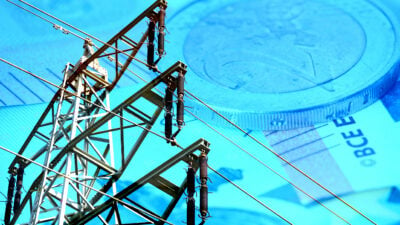
Toyota: Strong Yen Makes U.S. Market „Tough“

Japan’s Toyota Motor sees a tough situation for U.S. sales with a strong Japanese yen affecting sales of its Lexus and Scion brands in particular.
Toyota Motor sales president Jim Lentz says about 55% or more of its best-selling luxury brand, the Lexus, is still made in Japan.
Its popular youth-oriented Scion brand is produced mainly in Japan, and shipped complete to the U.S.
But Lentz points out that around two-thirds of Toyota cars sold in the U.S. are made in North America, shielding Toyota somewhat from the strong yen.
In the last three months of 2010, the yen stayed below 85 compared to the average 90 level a year ago.
Lentz also expects a strengthening dollar to ease upward pressure on the Japanese currency.
Still, the world’s top automaker has lagged rivals Honda and Nissan in combating currency losses, and is expected to post the biggest profit drop in quarterly earnings.
Analysts say Toyota’s third quarter operating profit may fall as much as 62 percent to 72 billion yen ($870 million), compared to a 29 percent fall for Honda, and an estimated 14 percent drop for Nissan.
Toyota reports earnings Tuesday, with Nissan on Wednesday.
Meantime the Financial Times is reporting that Nissan faces delays in deliveries of its eco-friendly Leaf.
The paper says Nissan has admitted bottlenecks in its quality assurance procedures and distribution delays because of the Leaf’s Internet-based ordering system.
The report quotes Nissan as saying the congestion should ease by April.
Nissan and Renault have earmarked $5 billion for investments in electric vehicle technology like Leaf, and the batteries that power them.
 Foto: NTDTV
Foto: NTDTV



























vielen Dank, dass Sie unseren Kommentar-Bereich nutzen.
Bitte verzichten Sie auf Unterstellungen, Schimpfworte, aggressive Formulierungen und Werbe-Links. Solche Kommentare werden wir nicht veröffentlichen. Dies umfasst ebenso abschweifende Kommentare, die keinen konkreten Bezug zum jeweiligen Artikel haben. Viele Kommentare waren bisher schon anregend und auf die Themen bezogen. Wir bitten Sie um eine Qualität, die den Artikeln entspricht, so haben wir alle etwas davon.
Da wir die Verantwortung für jeden veröffentlichten Kommentar tragen, geben wir Kommentare erst nach einer Prüfung frei. Je nach Aufkommen kann es deswegen zu zeitlichen Verzögerungen kommen.
Ihre Epoch Times - Redaktion